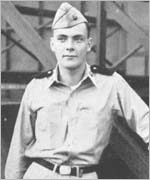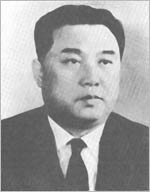 |
 |
 |
|||
 |
Home | Cold War Turns Hot | The Armed Forces Integrate | What the Experts Say | |||
|
The Cold War Turns Hot Bewitched, Bothered and Bewildered…
In the summer of 1950, Haig was a 25-year-old aide in General Douglas MacArthur's occupation headquarters in Tokyo. He was on duty that Sunday morning, June 25th, when a phone call came in from across the Sea of Japan, in Seoul. It was John Muccio, the U.S. Ambassador to South Korea. "And he told me that the North Koreans had attacked, an attack that was launched at six that morning, down several routes, with massive forces," Haig recalls. Both North and South Korea had been itching for a fight, and there'd been dozens of skirmishes and false alarms in recent months. Not this time, says Haig. "[Muccio] assured me that it was the real thing, and I immediately called my immediate commander, General Almond. Almond then immediately called MacArthur." Over the next few days, President Truman held intensive discussions with his advisors in Washington, and with General MacArthur in Tokyo via teletype conference. Al Haig recalls sitting in on several of the "telecons" in the Tokyo headquarters. "I think both MacArthur and the President concluded that this was an action that could not be tolerated," Haig says, "because it was clearly instigated by the Soviet Union."
"All of the years of argument in the Cold War were finally at a decision point," says historian Roy Flint, a former dean of the U.S. Military Academy at West Point who now teaches at Lees-McRae College in North Carolina. "You either believe all the things you've been saying or you don't." U.S. leaders had wavered, publicly and privately, on whether they would defend South Korea militarily. Some historians suspect the war might have been prevented entirely if the Americans had made clear that they would respond to a North Korean assault. In any case, now that the attack had come, Truman saw no alternative. "And he responded in a way that shaped the rest of the 20th century," says Flint. "That's how important I think the decision was." Next: Mauled and Humiliated
|
||||

